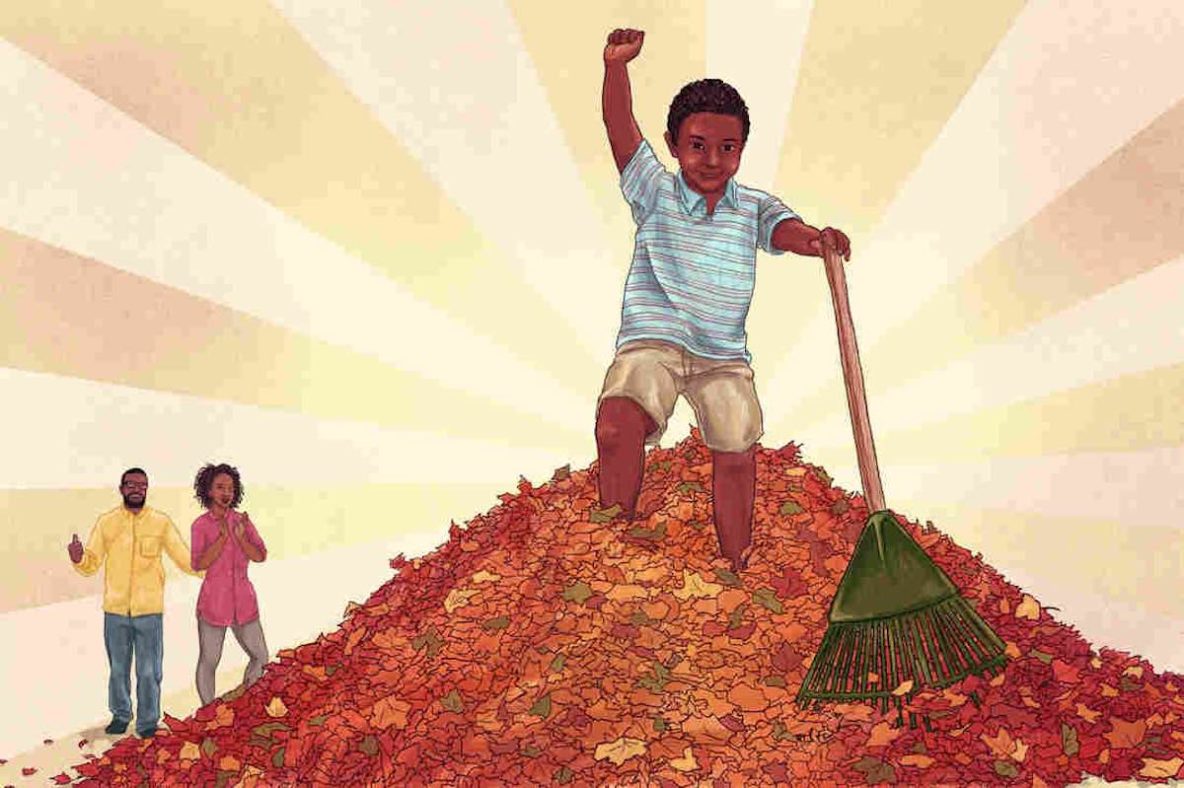Childhood — and parenting — have radically changed in the past few decades, to the point where far more children today struggle to manage their behavior.
That’s the argument Katherine Reynolds Lewis makes in her new parenting book, The Good News About Bad Behavior.
“We face a crisis of self-regulation,” Lewis writes. And by “we,” she means parents and teachers who struggle daily with difficult behavior from the children in their lives.
Lewis, a journalist, certified parent educator and mother of three, asks why so many kids today are having trouble managing their behavior and emotions.
Three factors, she says, have contributed mightily to this crisis.
First: Where, how and how much kids are allowed to play has changed. Second, their access to technology and social media has exploded.
Finally, Lewis suggests, children today are too “unemployed.” She doesn’t simply mean the occasional summer job for a high school teen. The term is a big tent, and she uses it to include household jobs that can help even toddlers build confidence and a sense of community.
“They’re not asked to do anything to contribute to a neighborhood or family or community,” Lewis tells NPR in a recent interview. “And that really erodes their sense of self-worth — just as it would with an adult being unemployed.”
Below is more of that interview, edited for length and clarity.
What sorts of tasks are children and parents prioritizing instead of household responsibilities?
To be straight-A students and athletic superstars, gifted musicians and artists — which are all wonderful goals, but they are long-term and pretty narcissistic. They don’t have that sense of contribution and belonging in a family the way that a simple household chore does, like helping a parent prepare a meal. Anyone who loves to cook knows it’s so satisfying to feed someone you love and to see that gratitude and enjoyment on their faces. And kids today are robbed of that.
It’s part of the work of the family. We all do it, and when it’s more of a social compact than an adult in charge of doling out a reward, that’s much more powerful. They can see that everyone around them is doing jobs. So it seems only fair that they should also.
Kids are so driven by what’s fair and what’s unfair. And that’s why the more power you give kids, the more control you give them, the more they will step up.
You also argue that play has changed dramatically. How so?
Two or three decades ago, children were roaming neighborhoods in mixed-age groups, playing pretty unsupervised or lightly supervised. They were able to resolve disputes, which they had a strong motivation to because they wanted to keep playing. They also planned their time and managed their games. They had a lot of autonomy, which also feeds self-esteem and mental health.
Nowadays, kids, including my own, are in child care pretty much from morning until they fall into bed — or they’re under the supervision of their parents. So they aren’t taking small risks. They aren’t managing their time. They aren’t making decisions and resolving disputes with their playmates the way that kids were 20 or 30 years ago. And those are really important social and emotional skills for kids to learn, and play is how all young mammals learn them.
While we’re on the subject of play and the importance of letting kids take risks, even physical risks, you mention a remarkable study out of New Zealand — about phobias. Can you tell us about it?
This study dates back to when psychologists believed that if you had a phobia as an adult, you must have had some traumatic experience as a child. So they started looking at people who had phobias and what their childhood experiences were like. In fact, they found the opposite relationship.
People who had a fall from heights were less likely to have an adult phobia of heights. People who had an early experience with near-drowning had zero correlation with a phobia of water, and children who were separated from their parents briefly at an early age actually had less separation anxiety later in life.
We need to help kids to develop tolerance against anxiety, and the best way to do that, this research suggests, is to take small risks — to have falls and scrapes and tumbles and discover that they’re capable and that they can survive being hurt. Let them play with sticks or fall off a tree. And yeah, maybe they break their arm, but that’s how they learn how high they can climb. To read more from Corey Turner, click here.

